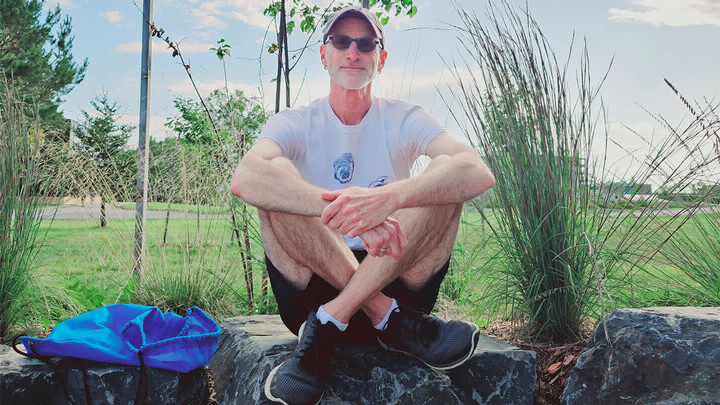A matter of privilege
February 12, 2024

In his upcoming webinar, UVic sociology grad and education professor Gerald Walton explores privilege and how it can be used to help create a more equitable society.
As part of the UVic Alumni guest speaker series, sociologist and education professor Gerald Walton (BA ’96, MA ’00) leads a virtual “lunch and learn” session on the topic of privilege. Although well-intentioned and much buzzed about, it’s not enough to “check your privilege,” says Walton, who will explore the different ways privilege can and should be used as a tool for creating social equity.
We talked with the UVic double grad and professor at Lakehead University in Thunder Bay, Ont. about his time at UVic, his own privilege and why he prefers the idea of being a “co-conspirator” rather than an ally.
When did you become interested in the topic of privilege?
When I started my undergrad [at UVic] and I began understanding what privilege and oppression are… I was initially focused on my own thing, focused on queer oppression, focused on not fitting into the gender boxes… Slowly, as I took courses, as I learned more from other people, especially Indigenous people, I began to realize that if I'm talking about equity and I'm teaching about these things, focusing on the ways that I don't have privilege isn't good enough.
If I want people to have my back, if I want cis heterosexual people to have my back, then I have to have the backs of other people… And that's how I started to develop more of an argument around recognizing my own privilege and trying to use it to do the work.
Does the phrase “check your privilege” hold weight anymore or does it only scratch the surface of what needs to be done in an equitable society?
I value the intent of the phrase, but it's one of those phrases that has been used so often it gets lost and loses its power. The other thing about that phrase is that over the years there's been a lot of people… who are now having strong knee-jerk reactions around this thing called equity…. and the suggestion that they might have privilege is something that a lot of people are not only actively resisting but are hostile about .
So, I don't see [the phrase] all that useful anymore because it's too simple. You can't just check your privilege. I walk around as a white person—I can't check that. I can't not have the privilege that goes with it. I can work to be more aware of it and try to do something with that privilege, but that's not the same thing as my understanding of what it means to check your privilege.
What are ways someone can use their privilege as a tool for equity or to benefit someone that's not like them?
There’s a social worker and activist named Feminista Jones… and I’m influenced by her idea of being a co-conspirator as opposed to being an ally… The co-conspirator is where the person who is in the privileged group is doing the work behind the scenes and carrying some of the weight of equity work, but without the fanfare of “look at me—I'm such a great ally.”
…What it comes down to is recognizing your privilege, doing the work continually to see how you are privileged—and that could be in the form of reading, educating yourself, talking with other folks who are happy and willing to sit down and talk with you… and be a co-conspirator.
Over one's lifetime, or even over a decade, you might influence people who are in the same privilege group as you... That's the hope—that we will have rippling effects to other folks in a similar kind of way.
—Michael Kissinger, BEd ’94
Photo by Ankit Siwach